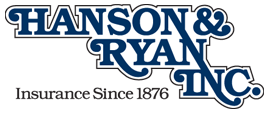Why Are Insurance Audits Necessary?
 Your insurance carrier determines your premium based on your prior year’s business activities, which means the premium you are quoted at the beginning of the term is more of an estimate than a final cost.
Your insurance carrier determines your premium based on your prior year’s business activities, which means the premium you are quoted at the beginning of the term is more of an estimate than a final cost.
Insurance audits are performed by insurance companies at the end of each policy term to ensure your business’s annual revenue and/or payroll was reported properly and that the policy reflects accurate rating metrics. Conducting a premium audit helps to ensure that your business’s insurance coverage is an appropriate level, as underinsuring can lead to surprise costs later on.
Insurance audits are very common for many types of businesses, including those with general liability insurance, liquor liability insurance, worker’s compensation insurance, or other similar commercial/business insurance policies.
How Does the Insurance Audit Process Work?
Each time you, as a small business owner, purchase a new commercial insurance policy or renew an existing one, the insurance company determines the premium you pay based on your estimated gross sales or payroll for the year. Once that first policy period has expired, there’s a bit less estimating that needs to be done for the following year, as the insurance company now has a year’s worth of data to audit and use for reference.
By utilizing the data from your audit, your insurance agent can more accurately price your commercial insurance plan going forward. The insurance audit process is repeated in this way every year, allowing your policy to grow and change appropriately alongside your business.
Preparing for Your Audit
As the expiration date on your policy nears, you should begin to collect all of the necessary financial statements to complete the audit. You will want to have full records of your business’s operations including:
- Payroll records
- 941s
- W2 forms
- QuickBooks reports
- Unemployment reports
- Profit and loss statements
- Subcontractors’ certificates of insurance (if applicable)
Furthermore, be prepared to discuss your bookkeeping practices and procedures with your agent, as proper record keeping can serve to your benefit. When preparing for your audit, you, as the business leader, should plan to be as thorough as possible. During the insurance audit process, ambiguity will not serve you well.
Insurance Audit Results
When all is said and done, your auditing report could leave you with one of two options: a balance due or a credit.
Balance Due
If you end up with a balance due, that means you underpaid your premiums for the year, and you will owe your insurance carrier the difference. Simply pay off the balance and you’ll be ready to move past your insurance audit!
Credit
If you end up with a credit, this means you overpaid your premiums for the year, and in that case, the carrier will either credit or refund the overpayment to you.
Insurance Audit Non-Compliance
Complying with your yearly insurance audit is critical if you want to avoid any unnecessary noncompliance charges, which can sometimes be as much as 300% of the estimated premium on the policy. At Hanson & Ryan, we advocate that all of our clients offer complete compliance throughout their insurance audit process.
Hanson & Ryan Can Help with Your Insurance Audit!
Let’s face it; no one likes audits and they certainly do not look forward to completing the extra paperwork. Here at Hanson & Ryan, we have a certified public accountant that is not only knowledgeable in the accounting field but also knows insurance regulations inside and out. By providing us with some basic information we are able to complete the audit with the carrier directly.
If you’d like to learn more about how the team of insurance agents at Hanson & Ryan can help with your insurance audit, reach out to us today!



